ICYMI: Florida State Hispanic Chamber President Highlights Space Industry As Growing Economic Pillar
In case you missed it, Julio Fuentes, president of the Florida State Hispanic Chamber of Commerce, penned a piece in Florida Today discussing the economic benefits of the growing U.S. space industry, including low Earth orbit (LEO) satellites, for Florida and the nation.
“This is an exciting time for Made in America innovation and economic growth,” says Fuentes. From Florida’s Kennedy Space Center and Amazon’s Cape Canaveral facility to Starlink’s Texas headquarters to aerospace education investments at Lake Washington Institute of Technology, the LEO satellite sector is boosting the U.S. economy on all fronts.
The expansion of high-speed broadband promises major economic wins itself. The Florida Department of Economic Opportunity says access to reliable internet is “necessary for economic development in a modern economy.” Thanks to their low orbit, expansive LEO satellite constellations can connect unserved and underserved areas quickly, bypassing the terrestrial and financial hurdles of traditional technologies and bringing the full promise of reliable, high-speed broadband to every American.
Read the full op-ed below and learn more about the Connect Everyone Coalition HERE.
Opinion: Space Industry Continues To Be Growing Economic Pillar
Florida Today
Julio Fuentes
July 1, 2025
This is an exciting time for Made in America innovation and economic growth. From artificial intelligence to cryptocurrency to space travel and beyond, American entrepreneurs and skilled American workers are on the front lines, leading the world forward toward huge advances with the potential for economic transformation. Recent months have brought headline after headline of great American businesses planning sizeable new investments and expansions, and other countries’ leading businesses seeking to bring jobs and dollars to our shores.
Here in Florida, the space industry especially is a huge and growing economic pillar for Florida, supporting nearly $6 billion in activity and more than 151,000 jobs. Cape Canaveral’s Kennedy Space Center, as the world’s preeminent launch complex for both government and commercial space access, is attracting great investments from major space and tech companies with their eyes on the skies.
One exciting new sector in particular deserves even more attention than it is already getting for its contribution to the growth of this sector: The growing field of low Earth orbit (LEO) satellites — and the coming revolution in broadband access it will spark.
LEO satellites are smaller, cheaper-to-construct satellites that orbit in large constellations close to Earth. This allows the satellites to provide high-quality internet service that is less vulnerable to disruptions and available anywhere in the world where you can plug in a small terminal and point it to the sky – even rural and remote areas that have been underserved by previous technologies.
Even in its infancy, the LEO sector is playing a big part. In the near term, the new Space Age jobs and prosperity tied directly to the LEO industry are already having an outsized impact on the Space Coast and throughout Florida. And in the long run, by providing fast, affordable, modern connectivity to everyone, everywhere, LEO satellites could unleash a tidal wave of greater efficiency, opportunity and economic growth for all.
Our chamber has been championing American business and Florida entrepreneurs for 25 years, and we are thrilled to watch the growing U.S. leadership in this sector. In the past few years, Amazon’s Project Kuiper and SpaceX’s Starlink have joined Canadian provider Telesat and European provider Eutelsat OneWeb in the skies and are already positioning the U.S. as a LEO technology leader.
The famous LEO broadband provider Starlink has already launched well over 7,000 operational satellites into orbit, with many taking off from the Kennedy Space Center in Brevard County. And Amazon’s up-and-coming Project Kuiper is set to launch more LEO satellites into orbit from KSC. Their constellation is expected to begin serving broadband access by the end of this year.
In our state and around the country, the ramp-up in satellite production and launches is further strengthening demand for engineers, technologists and skilled labor and spurring new investments in high-tech manufacturing and R&D.
For example, outside of its nearly $140 million facility under construction at Cape Canaveral, Amazon’s Project Kuiper has invested $10 billion in Washington state for state-of-the-art headquarters and facilities, and Starlink has invested more than $56 million in its facilities in Bastrop County, Texas.
As this $33 billion industry is projected to continue to grow, reaching upwards of $102 billion as soon as 2032, local enterprise is rising up to support it. The promise of growth is prompting universities and training programs to invest in new LEO-related educational initiatives, including a partnership between Project Kuiper and Lake Washington Institute of Technology to create certification programs in aerospace assembly and aerospace manufacturing.
But the economic impact of LEO satellites will reach far beyond the sector itself – this growth isn’t happening in a vacuum. Bringing faster, more reliable, more affordable broadband internet service to communities and entire regions that traditional technologies have left behind promises to have transformational impacts. A dramatic increase in connectivity for the households, towns and areas across America that need it most will be a huge force-amplifier with positive ripple effects throughout our economy and society.
As our own Florida Department of Economic Opportunity puts it, access to reliable internet is “necessary for economic development in a modern economy… [and] as critical to basic infrastructure needs as roads, water and wastewater services, and energy.” Yet millions of Americans are still underserved with broadband access. Adding the nimble, portable option of LEO satellite broadband to our state’s and our country’s connectivity toolboxes will improve communication and education, driving advancements in fields from home health care to agriculture and grow our businesses and attract more high-quality jobs for Floridians.
LEO satellites are on their way to becoming yet another Made in America economic success story. But happy endings do not write themselves. Washington D.C. needs to put forward policies that make it easier, not harder, to keep advancing LEO innovation and expanding broadband access.
Luckily, signs suggest our current policymakers are on the right track. The Federal Communications Commission (FCC) has recently signaled its intent to loosen regulations on this important technology. The Commission’s Space Bureau chief himself uses LEO connectivity at home and recognizes that the current, dated regulatory structure is “designed for the last space race”, creates unnecessary barriers and is ripe for modernization. The FCC also recently voted to relax the power limits for LEO transmission, removing restrictions that would put up barriers to download speeds and limit the number of customers a provider can serve.
We hope the FCC will keep up the good work, and lawmakers in Congress will look for opportunities through legislation to further encourage American leadership in LEO satellites. By making smart investments and paring back overregulation, the U.S. will remain on the cutting edge of space technology and progress toward closing the digital divide, once and for all.
Julio Fuentes is the president of the Florida State Hispanic Chamber of Commerce.
